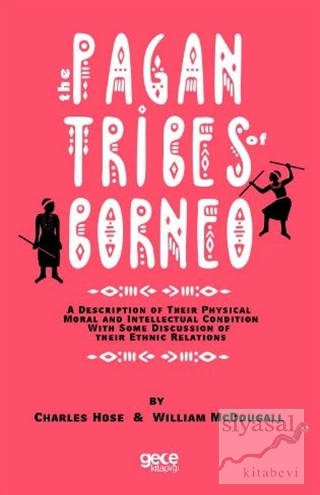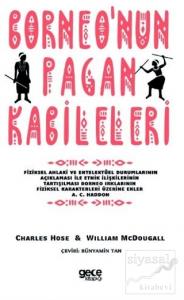
In writing this book we have aimed at presenting a clear picture of the pagan tribes of Borneo as they existed at the close of the nineteenth century. We have not attempted to embody in it the observations recorded by other writers, although we have profited by them and have been guided and aided by them in making our own observations. We have rather been content to put on record as much information as we have been able to obtain at first hand, both by direct observation of the people and of their possessions, customs, and manners, and by means of innumerable conversations with men and women of many tribes.
The reader has a right to be informed as to the nature of the opportunities we have enjoyed for collecting our material, and we therefore make the following personal statement. One of us (C. H.) has spent twenty-four years as a Civil Officer in the service of the Rajah of Sarawak; and of this time twenty-one years were spent actually in Sarawak, while periods of some months were spent from time to time in visiting neighbouring lands Celebes, Sulu Islands, Ternate, Malay Peninsula, British North Borneo, and Dutch Borneo. Of the twenty-one years spent in Sarawak, about eighteen were passed in the Baram district, and the remainder mostly in the Rejang district. In both these districts, but especially in the Baram, settlements and representatives of nearly all the principal peoples are to be found; and the nature of his duties as Resident Magistrate necessitated a constant and intimate intercourse with all the tribes of the districts, and many long and leisurely journeys into the far interior, often into regions which had not previously been explored. Such journeys, during which the tribesmen are the magistrate's only companions for many weeks or months, and during which his nights and many of his days are spent in the houses of the people, afford unequalled opportunities for obtaining intimate knowledge of them and their ways. These opportunities have not been neglected; notes have been written, special questions followed up, photographs taken, and sketches made, throughout all this period.
In writing this book we have aimed at presenting a clear picture of the pagan tribes of Borneo as they existed at the close of the nineteenth century. We have not attempted to embody in it the observations recorded by other writers, although we have profited by them and have been guided and aided by them in making our own observations. We have rather been content to put on record as much information as we have been able to obtain at first hand, both by direct observation of the people and of their possessions, customs, and manners, and by means of innumerable conversations with men and women of many tribes.
The reader has a right to be informed as to the nature of the opportunities we have enjoyed for collecting our material, and we therefore make the following personal statement. One of us (C. H.) has spent twenty-four years as a Civil Officer in the service of the Rajah of Sarawak; and of this time twenty-one years were spent actually in Sarawak, while periods of some months were spent from time to time in visiting neighbouring lands Celebes, Sulu Islands, Ternate, Malay Peninsula, British North Borneo, and Dutch Borneo. Of the twenty-one years spent in Sarawak, about eighteen were passed in the Baram district, and the remainder mostly in the Rejang district. In both these districts, but especially in the Baram, settlements and representatives of nearly all the principal peoples are to be found; and the nature of his duties as Resident Magistrate necessitated a constant and intimate intercourse with all the tribes of the districts, and many long and leisurely journeys into the far interior, often into regions which had not previously been explored. Such journeys, during which the tribesmen are the magistrate's only companions for many weeks or months, and during which his nights and many of his days are spent in the houses of the people, afford unequalled opportunities for obtaining intimate knowledge of them and their ways. These opportunities have not been neglected; notes have been written, special questions followed up, photographs taken, and sketches made, throughout all this period.





















